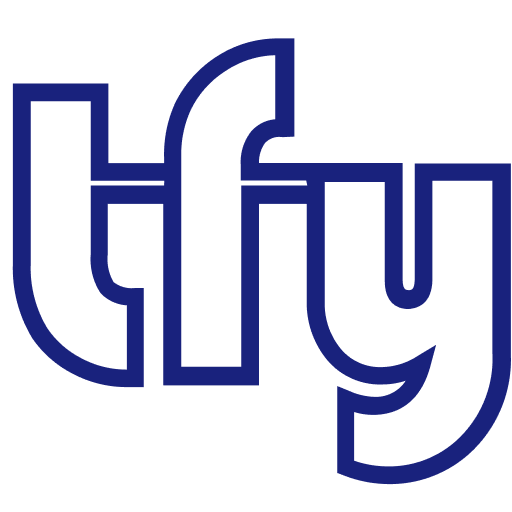Working with an employer of record has a lot of benefits for both employers and employees, but things occasionally go wrong due to all the complexities in global HR. To be fair, most employers and employees have a good experience working with EORs, but that doesn’t mean everyone gets a perfect experience every time.
This guide covers common issues employees have experienced with several popular employer of record providers. We researched online reviews for the most popular EORs and distilled them into the insights below.
1. Not getting paid on time
Most of the time your employees hired through an EOR will receive their payments on time, smoothly, and effortlessly. But sometimes employees don’t get paid on time. Especially if they are new hires and still going through onboarding, paperwork, taxes, visas, etc.
The most common negative reviews for EOR companies involve not being paid on time, and it seems more commonly associated with new hires. While EORs certainly strive to pay everyone on time, there are instances where an employee goes without timely or accurate pay.
When you have employees relying on you to keep them afloat financially, the last thing you want to hear about is issues with them receiving pay. Because their pay is managed through the EOR, it is entirely up to the EOR to pay your employees their correct pay on time, in full.
If your employee doesn’t get paid on time, they may not have the funds to cover necessary expenses like rent, bills, and groceries. This can lead to serious financial problems for the employee, and may even result in the employee being unable to afford to continue working.
Not being paid on time damages the relationship between employer and employee. And because the pay is managed through their EOR, it can also damage the employees’ trust in the EOR, causing more issues down the road.
2. Using a third-party entity for a country
Some EOR providers use third-party entities for some of the countries they offer services in. This can result in an inconsistent experience for employees.
For example, some EORs have service coverage in hundreds of countries, however, in many of those countries they use a third-party entity. This basically means the third party entity is the employer, the EOR is the middleman, and you’re the actual business the employee works for. Sounds complicated!
The main pitfall of an EOR provider using a third-party PE is inconsistency. Their support team may not have expertise in the country where they use third parties. And if you need the EORs support, they will often have to go to the third party and wait for a response, which adds days to the resolution of issues.
Safeguard Global recommends asking the following questions to ensure your employer of record has the competence and expertise for hiring in a specific country:
What kind of business entity do you have? Is it an LLC, a foreign employer registration, or a service branch?
An employer of record should have a permanent entity in-country, like an LLC or service branch, in order to provide local invoicing and other comprehensive services. A foreign employer registration is a temporary entity with significant limitations in the local market.
How many staff members are on the ground in the country?
If they have no in-country staff, they are relying on vendors and other resources for local service and expertise.
How long have you been direct in the country?
Providers with young entities will have less expertise and may not be able to manage overly complex employment situations.
>Read more on avoiding false EOR claims from Safeguard Global.
3. Lack of expertise in some countries
Finland has daily lunch benefits that employees can redeem. Employees can also claim an hour of paid work for taking exercise breaks.
Germany and Sweden have specific laws around “employee leasing” and have unique laws around hiring through an EOR.
Some countries are more likely to deem you the actual employer if an issue goes to court.
Hiring people in countries all around the world requires a lot of niche labor law expertise. Employer of record providers aren’t going to be familiar with every intricacy of hiring in every country.
If an employee runs into an issue where the employer of record isn’t knowledgeable on a specific benefit or labor law in their country, it’s going to result in the employee having to do additional legwork to ensure their local employment rights are being adhered to.
It can also result in your employee requesting your support to follow up with the EOR in order to resolve issues.
Before hiring a remote employee in a specific country, it’s a good idea to familiarize yourself with their local labor laws and talk to your employer of record to ensure they have the experience and expertise to hire from that country.
4. Chasing customer support
When you use an employer of record, the EOR becomes the legal employer of your employee, even though they still work for you. The EOR takes on all the HR duties of that employee like payroll, taxes, benefits, contracts, etc.
While an EOR takes on a lot of work and frees up time for employers, it can cause issues for employees. If an employee has any kind of issue with payroll or taxes, paid time off, contract stipulations, visas, or literally anything else, they will need to go through the EOR’s support system to get a resolution.
This can often result in the employee needing to follow up with the EOR and not getting clear answers as to what is going on and how the issue is being addressed. This can make employees feel like they are constantly chasing their employer of record to sort things out.
A bad experience with customer support is one of the most common reasons employees leave bad reviews for the employer of record providers. And it makes sense. Employment is complicated. When things go wrong, it’s critical, and waiting days to get answers is awful for an employee.
Being proactive and communicating with your employee and EOR to resolve issues is the best way to deal with situations like this. It shows your employee that you care, and that you’re not going to leave them to fend for themselves with the EOR.
5. Contract limitations
Because employers of record use systems and processes that allow for streamlined hiring in tons of different countries, some employees might find issues with employment contracts.
Issues can range from not including stipulations around local employment laws or a lack of customization of contracts. EOR contract systems are built for scale, not stipulations.
Employees may find that the EOR isn’t willing to budge on these contracts, which can be a frustrating experience. The employee may feel like they are being pressured or compromising by signing a contract that doesn’t comply with local labor laws, or is missing important clauses.
An employer of record may also recommend paying an employee’s salary during their notice period instead of terminating, even if they aren’t a good hire. They might do that in order to avoid getting themselves into legal trouble, at your expense.
6. Delayed hiring process
Because an employer of record is the legal employer, they can delay the hiring process.
Hiring delays can be caused for a lot of different reasons. Dealing with visas, contract stipulations, tax forms, and other complexities can cause delays. New hires might find themselves without a job and without pay, waiting for their EOR to sort things out.
This can cause a lot of issues for new hires and make them regret taking your job offer. It’s also something you don’t have a lot of control over.
Keeping clear communication with new hires and your EOR as they progress through the hiring process is crucial to ensure there are no unreasonable delays.
Recommended EORs
Using an EOR has risks. Hiring people in other countries through a third party adds a lot of complexity to the relationship. And you need to trust your EOR to handle any issues that arise in a timely manner.
However, the pros outweigh the cons. Despite occasional issues, an EOR is still a great solution for those looking to hire remotely.
Remote is a robust and modern platform for remote-first teams. EOR, contractor management, payroll, benefits, and more.
Oyster is an intuitive platform that allows you to hire, pay, and care for a global team in more than 180 countries. EOR, contractor management, payroll, benefits, and more.
TFY has features for applicant tracking, freelance management, payroll, and more in a single platform. The platform supports diversity hiring and Corporate Social Responsibility (CSR) initiatives.
Lano is both a B2B & B2C platform. Businesses can use it to process global payroll, hire remote talent and manage contractors, while employees and freelancers can benefit from its payslip service, invoicing app, multi-currency wallet, and more.





